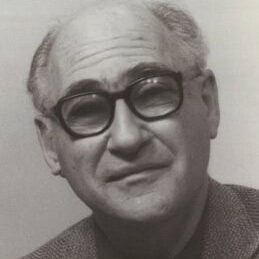The American Historical Association awards the George L. Mosse Prize annually for an outstanding major work of extraordinary scholarly distinction, creativity, and originality in the intellectual and cultural history of Europe since 1500.
The current prize amount is $1,000.
The general rules for submission are:
- Only books of a high scholarly distinction should be submitted. Research accuracy, originality, and literary merit are important selection factors.
- Books with a copyright of 2024 are eligible for the 2025 award.
- Nomination submissions may be made by an author or by a publisher. Publishers may submit as many entries as they wish. Authors or publishers may submit the same book for multiple AHA prizes.
- Nominators must complete an online prize submission form for each book submitted. Once you fill out the form you will receive an email with the committee’s contact information.
- One copy of each entry must be sent to each committee member and clearly labeled “Mosse Prize Entry.” Print copies preferred unless otherwise indicated. If only e-copy is available, please contact review committee members beforehand to arrange submission format.
Please Note: The competition will open in mid-March. Entries must be received by May 15, 2025, to be eligible for the 2025 competition. Entries will not be returned. Recipients will be announced on the AHA website in October 2025 and recognized during a ceremony at the January 2026 AHA annual meeting in Chicago.
For questions, please contact the Prize Administrator.

George L. Mosse
George L. Mosse (1918–99) was Bascom-Weinstein Professor of Jewish Studies at the University of Wisconsin-Madison. He was the author of suck works as The Crisis of German Ideology: The Intellectual Origins of the Third Reich (1964), Toward the Final Solution: A History of European Racism (1977), Nationalism and Sexuality (1985), and The Image of Man: The Creation of Modern Masculinity (1996). This prize was established with funds donated by former students, colleagues, and friends of Dr. Mosse.
Past Recipients
Current Recipient
Ari Joskowicz, Vanderbilt University
Rain of Ash: Roma, Jews, and the Holocaust (Princeton Univ. Press)
Ari Joskowicz compellingly writes about the intertwined histories of Romani and Jewish communities during and after World War II. It is an impressively written book on Hitler’s forgotten victims and their relationship with Jews for reparative justice, recognition, and remembrance. Expansive in its scope, the author challenges us to reconsider Romani–Jewish relations and the contours of Holocaust memory in both the past and present.